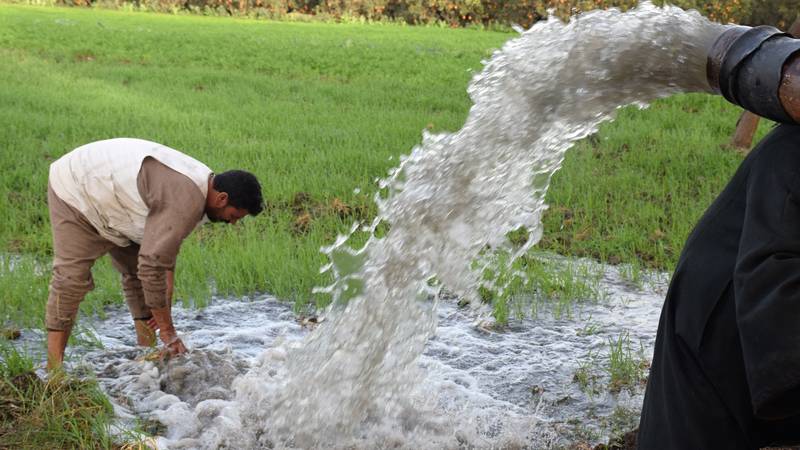To improve food security, increase water productivity

By Aly Abousabaa
Cairo – Water scarcity in the Middle East and North Africa is increasing at an alarming rate. It is already at critical levels in most of the countries of the region. The annual per capita share is continuously declining. Important resources, including water, are being diverted to other priority sectors. As a result, agriculture loses substantial amounts of water every year, even as the demand for food rises due to rapid population growth.
Climate change is set to make the conditions worse in the region. There will be less precipitation and more frequent droughts; extreme temperatures; changes in climatic zones; shorter growing seasons; emerging diseases and insect pests. All of these, especially the declining quantity and quality of water, will challenge our capacity to produce food.
To improve food and nutritional security, we must first increase water productivity substantially – there is no way around this.
While we have technologies and practices that can increase water productivity, there are limits to how much we can enhance water productivity without ensuring integration, institutional collaboration, enabling policy, and regional cooperation. We need to work together to scale out and scale up proven technologies. We need to empower men, women and young people with the tools, knowledge, and skills to unleash the agricultural sector’s potential and contribute to employment and growth. And we need to do this while safeguarding the precious resources for future generation.
In short, we need a paradigm shift in managing agriculture and water. Everyone, from farmers and community leaders to scientists and policymakers need to participate. This was the topic that ICARDA focused on during the Cairo Water Week here in Egypt.
Integration and collaboration are keys to maximizing water-use efficiency. In the region, we are far from implementing an integrated water resources management for agriculture. The system approach ensures that major constraints to improving water productivity are taken care of in due time: technical, economic, social and institutional components. To this end, we are now working together with IWMI, World fish, and IFPRI – three other CGIAR centers with different expertise – to tackle different components of the challenges.
Another major issue associated with increasing water productivity in agriculture is cropping patterns. Farmers are used to producing certain crops with available water. As water scarcity increases, those crops have become not the most productive crops. To change this, policies are critical to make modifications to cropping patterns. This requires cooperation of institutions at the country level.
Each country in the region has a comparative advantage over other countries in specific agricultural production areas. However, the concept of self-sufficiency drive countries to produce crops with low water-use efficiency. Regional cooperation on exchanging agricultural products based on each country’s comparative advantage would maximize the agricultural production and help countries reduce their food production cost. Exchanging virtual water at the regional level is the best approach to produce more crop per drop.
At ICARDA, we have been working with partners to find viable, affordable science-based solutions to complex problems. We work with farmers, as well as institutions at the national level to improve livelihoods and build resilience of rural communities in the dry areas. Examples:
- we have conducted research on modernizing irrigation systems and improved the efficiency of surface irrigation at farm level
- we are studying deficit irrigation as a water management strategy for water-scarce areas with minimum negative impact on crop yield
- we have modified cropping patterns to enhance water productivity and income by improving crop varieties that are drought tolerant and high yielding
- we are developing integrated livestock-rangeland-crops production systems on marginal lands
We will continue to work together with our partners to make ecosystems more resilient in the face of climate change and social challenges. We look forward to working together with partners to get the science-based solutions in the hands of rural communities.
